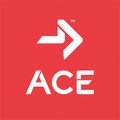The ACE Mover Method™ is the centerpiece of ACE’s client-centered approach. This philosophy positions ACE Certified Professionals to be effective behavior-change guides for their clients. But how can you turn this philosophy into a practical approach that you can use with your clients?
That’s where the three-step ACE ABC Approach™ comes in:
- Ask open-ended questions
- Break down barriers
- Collaborate
Every client interaction offers an opportunity to utilize coaching skills to help build rapport while positioning the client as an active partner in his or her behavior-change journey. Asking questions leads to the identification of goals and options for breaking down barriers, which in turn leads to collaborating on next steps.
The ACE Mover Method provides the foundational skills for communicating effectively with clients, but it is not the equivalent of a health coaching certification. Personal trainers, for example, should work in concert with other professionals, such as health coaches and registered dietitians and other allied health professionals whenever appropriate, to take a team approach to improving their clients’ health and wellness.
Step 1 of this process involves asking powerful questions to identify what the client hopes to accomplish by working with an exercise professional and what, if any, physical activities the client enjoys. For example, “What brings you here today?” and “How can I help?” are two impactful questions professionals may ask their clients.
This step takes a cue from motivational interviewing, in that it uses open-ended questions to spark a rich discussion about the client’s goals, values, preferences and strengths. This step also helps you use probing questions to elicit information about the client’s readiness to change and his or her self-efficacy when it comes to the ability to make a lifestyle change.
Clients must be able to communicate openly and freely with you so they know that their input is being heard and recognized as valuable.
Step 2 involves asking more open-ended questions to discover what potential or perceived barriers may get in the way of the client reaching his or her specific goals. Questions like “What do you need to start doing now to move closer to your goals?” and “What do you need to stop doing that will enable you to reach your goals?” can be very revealing and help you better understand the client’s past experiences and current circumstances.
The key here is to promote self-efficacy by working together on solutions. As noted in the transtheoretical model of behavior change, this process is crucial for building client self-efficacy and, in turn, self-motivation, around doing the hard work of behavior change.
Step 3 is all about collaboration as you and your client work together to set SMART (specific, measurable, attainable, relevant and time-bound) goals and establish specific steps to take action toward those goals. Allowing the client to lead the discussion of how to monitor and measure progress empowers him or her to take ownership of the personal behavior-change journey.
As indicated in the self-determination theory, people have higher intrinsic motivation to complete tasks if their basic psychological needs are met. These basic psychological needs are (1) autonomy, (2) competences and (3) relatedness. By using the ACE ABC Approach, you give clients the autonomy to choose their own goals and next steps. A client’s competence is acknowledged because clients are seen as experts on themselves, and relatedness is fostered through engaging conversation and excellent communication skills.
In Conclusion
Proper implementation of the ACE ABC Approach is really about taking a simple approach and applying it consistently. Whether you are meeting with a client for the first time, working with a long-term client who has reached a weight-loss plateau or is coping with new barriers to continued participation, or training an athletic client who wants to set some more aggressive performance-related goals, the ACE ABC Approach is the ideal tool to collaborate with clients and empower to make lasting behavior changes.




 by
by 











 by
by